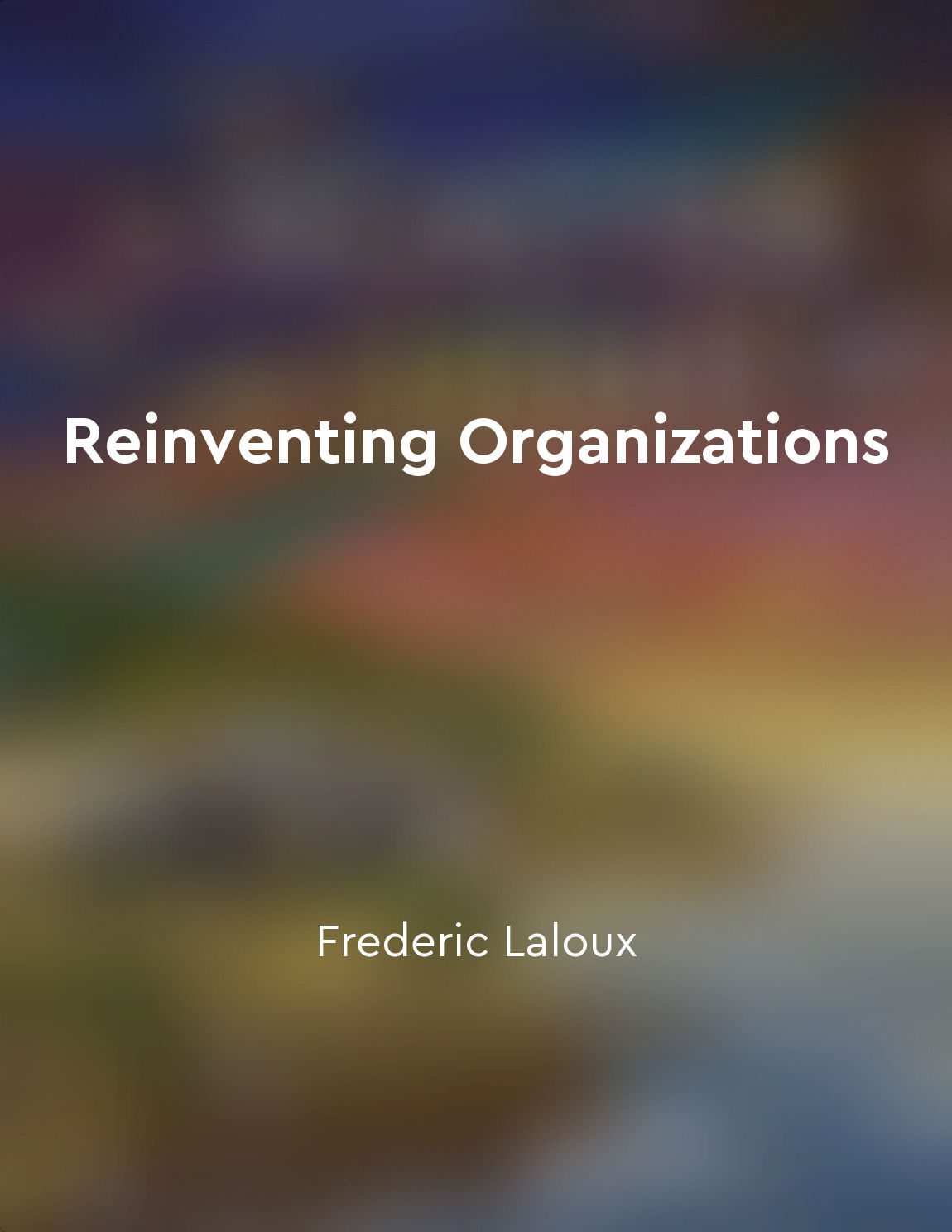Governments and corporations must adapt to the rise of decentralization from "summary" of The Starfish and the Spider by Ori Brafman,Rod A. Beckstrom
As we delve into the changing landscape of organizations and power structures, one thing becomes clear: the rise of decentralization is a force to be reckoned with. No longer can traditional hierarchies and centralized control mechanisms hold sway in a world where decentralized networks and communities are gaining ground. Governments and corporations must come to terms with this shift, understanding that the old ways of doing things are no longer sufficient in the face of this new reality. The concept of decentralization challenges the very foundations of traditional power structures, requiring a fundamental rethinking of how authority is distributed and wielded. In a decentralized system, power is dispersed among a network of interconnected nodes, rather than concentrated in a single entity or individual. This diffusion of power has profound implications for how decisions are made, resources are allocated, and goals are pursued. For governments and corporations, adapting to the rise of decentralization means embracing a more flexible and agile approach to governance and management. Centralized control must give way to distributed decision-making processes that empower individuals and teams to take ownership of their work and contribute to the organization's success. This shift requires a willingness to cede some degree of control and trust in the collective intelligence of the network. At the same time, governments and corporations must recognize the need for greater transparency and inclusivity in their operations. Decentralization thrives on open communication, collaboration, and participation, allowing for a diversity of perspectives and ideas to emerge. By embracing these principles, organizations can tap into the creativity and innovation of their members, leading to more effective and sustainable outcomes. In adapting to the rise of decentralization, governments and corporations must also be prepared to navigate the complexities and uncertainties that come with a more fluid and dynamic organizational structure. Hierarchies provide a sense of stability and predictability, but they can also stifle creativity and innovation. Decentralized networks, on the other hand, are inherently flexible and adaptable, able to respond quickly to changing circumstances and opportunities.- The rise of decentralization presents both challenges and opportunities for governments and corporations alike. By embracing this shift and reimagining their structures and processes, organizations can unlock new possibilities for growth, resilience, and success in an increasingly interconnected and interdependent world.
Similar Posts
Power can be fleeting
Power is a complex and dynamic force that can be both intoxicating and elusive. The very nature of power is such that it can ea...
The rise of social media has democratized access to power
The dizzying ascent of social media has fundamentally altered the landscape of power dynamics in today's world. In the past, ac...

Embrace a more ethical approach to leadership
Leaders who choose to embrace a more ethical approach understand that their decisions impact more than just their immediate suc...
Alcohol was their only weakness
"Alcohol was their only weakness" is a concept that highlights a crucial vulnerability within a particular group or organizatio...

Hierarchies are replaced with circles and roles
In organizations that have embraced a new way of operating, hierarchies no longer hold the same power they once did. Instead of...
They empower individuals and communities
The idea of empowering individuals and communities lies at the heart of the decentralized model of organizations discussed in t...
Traditional hierarchies are losing influence
The power dynamics of our society are undergoing a massive shift. Traditional hierarchies, once the dominant force in shaping o...

